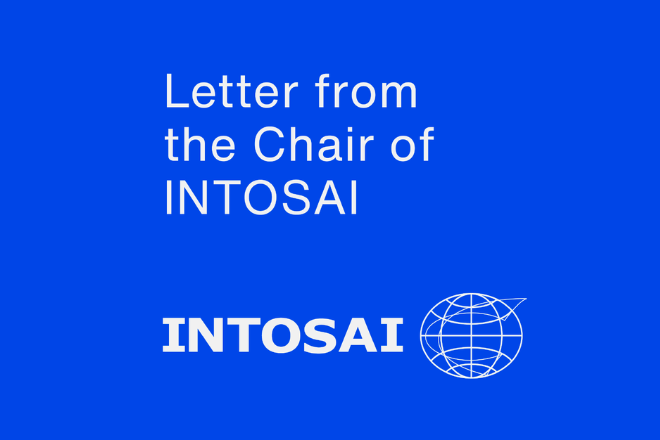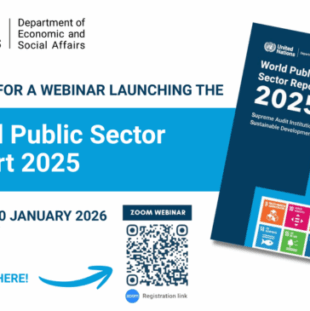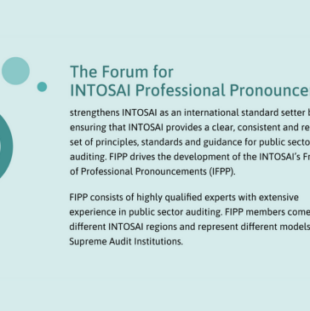The Role of Supreme Audit Institutions in Auditing Policies to Combat Hunger and Poverty

The chair of the International Organization of Supreme Audit Institutions (INTOSAI), Minister Bruno Dantas, in his October 2023 open letter, shares how INTOSAI contributes to the global fight against hunger and poverty.

Last September, the Sustainable Development Goals (SDG) Summit took place in New York, USA, marking the halfway point between the launch of the SDGs in 2015 as part of the 2030 Agenda and the deadline set for their achievement in 2030. The first two SDGs, aimed at eradicating poverty and hunger, have been hit the hardest by the joint and simultaneous impact of climate disasters, armed conflicts, the COVID-19 pandemic, and a global economic recession. Faced with challenges that required significant effort from the start, the achievement of these goals has been made even more difficult by this adverse environment.
According to United Nations (UN) data, global poverty has been steadily decreasing since the SDGs were established but suffered a significant setback due to the COVID-19 pandemic. The extreme poverty rate increased in 2020, reaching 9.3% of the world’s population, after falling from 10.8% in 2015 to 8.5% in 2019. This meant that approximately 724 million people were living on less than USD 2.15 per day. We only returned to pre-pandemic levels in 2022, with an estimated 670 million people living in extreme poverty, accounting for 8.4% of the world’s population.
It’s no surprise, then, that the SDG Summit identified this issue as the greatest global challenge of our time and an unavoidable requirement for sustainable development, and that Brazil, which is about to assume the presidency of the G20, has made a commitment to make the fight against hunger and poverty one of the priorities during its term at the head of the group.
According to the Classification of the Functions of Government (COFOG), adopted by the OECD and the UN, social protection is divided into nine distinct sub-functions that cover various vulnerable groups in society, such as people with disabilities, the sick, the elderly, poor families and children, as well as unemployment insurance and social housing policies. When we examine the 2021 data from OECD member countries, we see how important social protection policies are, with governments allocating around 20% of their GDPs on average to programs aimed at protecting the income of the most vulnerable segments of the population. Programs aimed at the socially excluded receive an average of 1% of GDP within this spectrum.
Considering the high cost and relevance of poverty alleviation programs, it is imperative that income protection policies achieve their maximum effectiveness. To accomplish this goal, such policies must be efficient and transparent, directing resources in a precise manner to meet the needs of the most vulnerable populations while allowing society to closely monitor their implementation.
Supreme Audit Institutions play a critical role in informing society about the quality of government spending. Performance audits, which include policy evaluations and spending reviews, are vital in this context, especially regarding the implementation of the SDGs.
In this scenario, the International Organization of Supreme Audit Institutions (INTOSAI) emerges as a beacon of excellence in conducting these audits. Its rigorous standards guarantee a comprehensive evaluation, identifying gaps, areas for improvement and ensuring transparency and accountability in achieving the SDGs. By establishing robust guidelines and promoting best practices, INTOSAI plays a fundamental role in promoting accountability and driving global efforts to meet sustainable goals.
Although the distribution of financial resources is a widely used metric, it is important to understand that the phenomenon of poverty is much more complex and must be assessed from multiple perspectives, covering areas such as food, health, education, access to drinking water, and housing conditions. While cash transfer policies play a critical role in creating a safety net against fluctuations in employment and income, the effective eradication of poverty requires an approach that promotes the development of all aspects that support a dignified life.
Public policies complementary to cash transfers address complex and interconnected issues and are essential for dealing with poverty in all its dimensions. They have the potential to drive sustainable structural change and improve people’s quality of life in the long term, breaking intergenerational poverty cycles, reducing socioeconomic inequalities, and encouraging social inclusion.
As a result, it is clear that the challenge of eradicating poverty cannot be tackled in isolation. The coordinated action of Supreme Audit Institutions in the complex challenge of eradicating poverty and hunger, the first two objectives of sustainable development, is pivotal. We play a significant role in evaluating the effectiveness of public policies, identifying inefficiencies, and directing the most efficient allocation of resources to areas that significantly impact poverty reduction. By providing society with valuable information about the use of public resources and the results of government actions, we contribute to improving the living conditions of people in vulnerable situations.
INTOSAI, as an organization that promotes cooperation between Supreme Audit Institutions around the world, provides an essential perspective on the effectiveness and transparency in implementing policies associated with sustainable objectives, which reinforces the importance of SAIs in developing and improving strategies to achieve significant global goals.
Furthermore, the organization promotes several initiatives dedicated to addressing the challenges of hunger and poverty, reflecting its tireless commitment to building a more just and equal world. Among them, I would like to draw attention to the “Equal Futures Audit Changemakers” (EFA) project, led by the INTOSAI Development Initiative (IDI). EFA aims to promote and support high-quality, high-impact auditing practices, with a focus on priority areas related to situations of inequality and marginalization, such as poverty, gender, ethnicity, migration, age, and disability. Through the project, IDI will train and assist Supreme Audit Institutions in developing strategies for action on these sensitive issues, as well as supporting the performance of audits in accordance with established standards, optimizing the impact of these audits and thus reinforcing the role and contribution of Supreme Audit Institutions in the pursuit of a fairer and more equitable future.
It is paramount that we join forces and collaborate to ensure not only the efficacy, but also the effectiveness of anti-poverty policies, making concrete progress towards achieving the established global objectives. In this context, the crucial role played by INTOSAI stands out, with its finished and ongoing work, demonstrating a solid and continuous commitment to the search for impactful and sustainable solutions.






